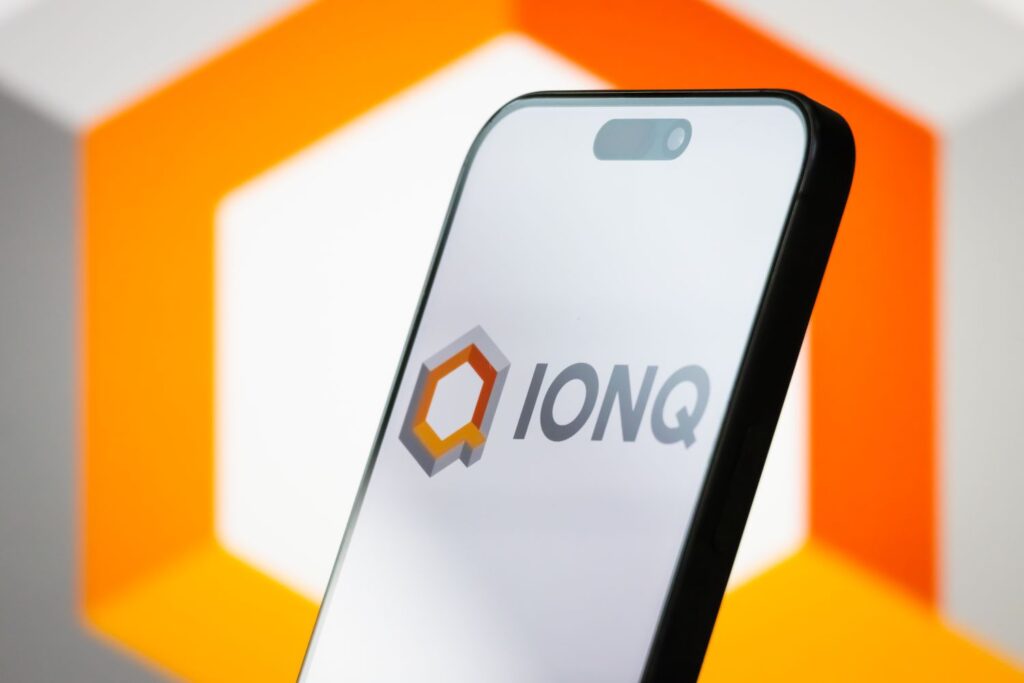IonQ, the Maryland-based quantum computing company known for its ground-breaking work in quantum technology, has announced its intention to acquire UK-based startup Oxford Ionics in a deal valued at approximately $1.1 billion. This acquisition not only signifies IonQ’s aggressive expansion strategy but also its determination to shape the future of quantum computing through enhanced technology integration.
The acquisition is part of IonQ’s ongoing commitment to push the boundaries of quantum computing capabilities by combining its existing quantum hardware and software with Oxford’s pioneering quantum chip technology. Oxford Ionics has garnered attention for its remarkable achievements in quantum accuracy, which significantly improves computational performance at the atomic level. The collaboration is anticipated to address complex computational challenges that traditional supercomputers struggle to solve.
A Wave of Acquisitions
This move follows a series of strategic acquisitions by IonQ, including notable companies like Lightsynq Technologies and Capella Space over the past year. The recent transactions showcase IonQ’s readiness to invest heavily in technologies that will expedite its roadmap toward achieving fault-tolerant quantum systems. By merging with Oxford Ionics, IonQ aims to enhance its position in a rapidly evolving industry that is on the brink of a quantum revolution.
In a statement, IonQ’s CEO Niccolo de Masi emphasized the potential of the acquisition, stating that the combined resources will enable the company to build quantum systems with a target of 256 qubits at an astonishing accuracy rate of 99.99% by 2026. Furthermore, the ambition is to expand this capacity beyond 10,000 qubits by 2027, with a long-term vision of attaining up to 2 million qubits by 2030. Such capabilities could revolutionize industries, including pharmaceuticals, material science, and more by enabling complex simulations and computations that have previously been unattainable.
The shift towards greater quantum capability underscores the increasing relevance of qubits—the fundamental units of quantum computing that represent data in quantum states. This push aligns with industrial trends, where companies are racing to develop quantum systems that can outperform traditional computing architectures in various applications.
The Economic Landscape of Quantum Computing
Despite its current lack of profitability, IonQ’s stock has gained nearly 400% over the last year, making the company a hot topic among investors and tech enthusiasts alike. The consistent growth in share value reflects an increasing confidence in IonQ’s strategy and execution, as more investors recognize the transformative potential of quantum computing technologies.
Market analysts observe that the acquisition of Oxford Ionics positions IonQ strategically within the competitive landscape of quantum technology. The rising demand for quantum capabilities in sectors ranging from finance to pharmaceuticals is leading to increased investments in quantum initiatives. The collaboration with Oxford Ionics enhances IonQ’s technological arsenal and poises it to capitalize on these trends.
Collaboration with Key Industry Players
Alongside this acquisition, IonQ has recently announced a promising collaboration with Nvidia, Amazon Web Services, and AstraZeneca to explore the potential of quantum computing in drug development. The collaborative project achieved remarkable results, enabling simulations of chemical reactions used in drug synthesis at speeds twenty times faster than conventional methods. Such advancements are critical as the pharmaceutical industry increasingly turns towards quantum solutions to meet growing demands for efficiency and innovation.
Nvidia’s endorsement of IonQ’s technologies speaks volumes about the potential of quantum computing in the semiconductor industry. As IonQ aims to establish itself as a leading player in quantum technology, parallels are drawn with Nvidia’s dominance in classical computing. The expectation is that IonQ will soon emerge as “the Nvidia of quantum computing”, fueling further investment and interest in the sector.
Looking to the Future
With this latest acquisition, IonQ is undeniably reshaping its trajectory towards a new era in quantum computing. The merger of its established quantum systems with Oxford Ionics’ innovative chip technology is expected to accelerate the development and deployment of highly capable quantum computers.
The implications of these advancements are vast. Industries could soon leverage quantum computing to perform complex analyses that lead to breakthroughs in various fields, from climate modeling to drug discovery. As IonQ continues to execute its strategic vision, stakeholders will watch closely to see how its innovations unfold and impact the technological landscape.
The Broader Impact on Quantum Research and Industry
The continued investment in quantum research and development will not only benefit IonQ but also stimulate growth and innovation throughout the broader tech ecosystem. As more companies explore quantum solutions, a wave of academic and commercial collaborations are likely to emerge that will further propagate knowledge and technology exchanges across the industry.
Moreover, as quantum technology matures, it could transform educational initiatives, leading to a new generation of researchers and practitioners equipped with the skills to advance quantum methodologies. The expectation is a strong commitment from educational institutions to cultivate a workforce prepared to thrive in a quantum-driven future.
Conclusion
The ambitious plans laid out by IonQ signal a transformative eventuality in quantum computing. With the merger of its innovative capabilities with Oxford’s leading-edge technology, IonQ stands on the threshold of monumental breakthroughs that could potentially redefine the tech industry’s landscape. This acquisition, supplemented by collaborative efforts with tech giants like Nvidia, indicates a robust momentum toward achieving quantum supremacy that will have far-reaching implications for industries worldwide. As IonQ navigates this complex and rapidly evolving field, it may very well serve as a catalyst for further advancements in this mesmerizing discipline.

